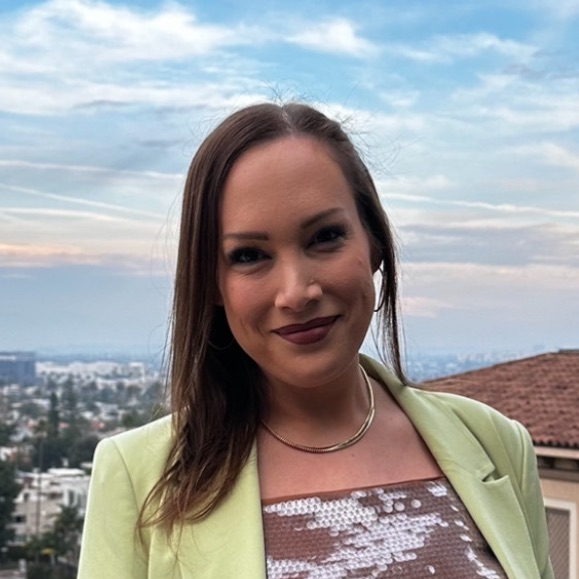What Is a Sports Psychologist?
A sports psychologist is a licensed mental health professional who specializes in helping athletes and active individuals address psychological factors that impact their performance, well-being, and overall mental health. Unlike general psychologists, these professionals have specialized training in performance psychology and understand the unique pressures, challenges, and mental demands that come with competitive athletics.
Sports psychologists are trained to use psychological skills to help athletes excel in their sports careers, drawing upon psychology as well as other disciplines such as biomechanics, physiology, kinesiology, and medicine to help athletes maintain optimal performance and adjustment. This interdisciplinary approach allows them to address both performance-related concerns and broader mental health issues within the context of athletic participation.
Sports psychologists serve two primary functions that often overlap: performance enhancement and mental health treatment. As a mental performance coach, they help athletes develop psychological skills such as concentration, confidence, motivation, and stress management to optimize their athletic performance. This aspect of their work focuses on mental training for athletes, teaching techniques like visualization, goal-setting, and mindfulness to enhance competitive performance.
Simultaneously, sports psychologists provide crucial mental health services for athletes who may be experiencing anxiety, depression, eating disorders, substance abuse issues, or other psychological concerns. For mental health concerns frequently experienced by athletes, such as anxiety, mild depression, anger, and sports-related adjustment issues, psychotherapy (talk therapy) is often the first line of treatment. This dual expertise makes them uniquely qualified to understand how mental health issues can impact athletic performance and vice versa.
Services Provided by Sports Psychologists
The scope of sport psychology services is comprehensive and tailored to meet the diverse needs of athletes. These professionals offer individual therapy for athletes dealing with performance anxiety, burnout, injury recovery, and life transitions. They provide sports counseling that addresses the psychological aspects of competition, team dynamics, and the pressures of athletic achievement.
Group therapy sessions are common, allowing athletes to connect with others facing similar challenges. Family counseling may be incorporated when athletic pursuits affect family relationships or when family dynamics impact an athlete's performance. Additionally, many sports psychologists offer educational workshops and seminars on topics such as stress management, team building, and mental resilience.
Career transition support is another critical service, helping athletes navigate the psychological challenges of retirement, injury-related career changes, or transitions between competitive levels. This support is particularly valuable given the identity challenges that many athletes face when their competitive careers end.
Educational Requirements and Licensing
The path to becoming a professional sports psychologist requires extensive education and training. Most states require at least two years of supervised experience for licensure, and it can take six or more years to become a sports psychologist, depending on whether you pursue a master's or doctorate. The educational journey typically begins with a four-year bachelor's degree in psychology or a related field, followed by a master's degree in sports psychology, clinical psychology, or counseling psychology.
Aspiring sports psychologists must complete a set number of supervised clinical hours, usually ranging from 1,500 to 3,000 hours, which is equivalent to about two years of post-doctoral experience. This supervised experience is essential for developing the practical skills necessary to work effectively with athletes and athletic populations.
Geographical Variations in Licensing and Practice
Licensing requirements for sports psychologists vary significantly across states, creating important considerations for both practitioners and clients seeking services. Most state boards require a doctoral degree in psychology, a passing score on the EPPP (Examination for Professional Practice in Psychology), and a year of supervised post-doctorate work. However, the specific requirements can differ substantially between jurisdictions.
Some states have more stringent requirements for the use of the title "psychologist," while others may allow master's-level practitioners to provide certain services under different titles such as "mental performance consultant" or "sport psychology specialist." This variation means that individuals seeking sports psychology services should verify their provider's credentials and ensure they are appropriately licensed in their state.
The availability of sports psychology services also varies geographically. Urban areas and regions with major universities or professional sports teams typically have more options for in-person services. Rural areas may have limited access to specialized sports psychology services, making online sports psychologist options particularly valuable for these populations.
The Rise of Virtual Sports Psychology Services
The expansion of telehealth services has significantly increased access to sports psychology care, particularly benefiting athletes in underserved areas. An online sports psychologist can provide many of the same services as in-person practitioners, including individual therapy, performance coaching, and group sessions. Virtual sports psychologist services have become increasingly sophisticated, incorporating technology-based interventions and digital tools for mental training.
This accessibility is particularly important for athlete populations who may face barriers to traditional mental health services, including scheduling conflicts with training and competition, concerns about stigma, and geographical limitations. Online platforms also allow athletes to access specialized care from providers who understand their specific sport or competitive level, regardless of physical location.
Specialized Populations and Services
Sports psychologists often specialize in working with specific populations or addressing particular issues. A youth sports psychologist focuses on the unique developmental needs of young athletes, addressing issues such as parental pressure, early specialization concerns, and the balance between academics and athletics. These professionals understand the psychological development of children and adolescents and can help young athletes develop healthy relationships with competition and achievement.
Professional sports psychologists may work with elite athletes, professional teams, or Olympic-level competitors. These practitioners often have extensive experience with high-performance environments and understand the unique pressures faced by athletes at the highest levels of competition. They may be involved in pre-competition preparation, crisis intervention, and long-term performance optimization.
Integration with Healthcare Teams
Modern sports psychology practice often involves collaboration with other healthcare professionals. Sports psychologists frequently work alongside team physicians, physical therapists, nutritionists, and athletic trainers to provide comprehensive care. This collaborative approach recognizes that mental health and physical health are interconnected, particularly in athletic populations.
Current approaches to supporting elite athlete mental health have centered mostly on building mental health literacy or awareness, but experts call for a comprehensive mental health framework to promote athlete mental health and wellbeing. This integrated approach ensures that athletes receive holistic care that addresses all aspects of their health and performance.
How to Find and Choose a Sports Psychologist
When seeking sports psychology services, several factors should be considered to ensure you find the right fit. First, verify that the practitioner is appropriately licensed in your state and has specific training in sports psychology. Look for credentials from recognized organizations such as the Association for Applied Sport Psychology (AASP), which provides certification for qualified professionals.
Consider the practitioner's experience with your specific sport, competitive level, and age group. Some sports psychologists specialize in team sports while others focus on individual sports. Similarly, working with youth athletes requires different skills than working with professional athletes. Ask about their approach to treatment and whether they offer both performance enhancement and mental health services.
Location and accessibility are practical considerations, particularly if you prefer in-person sessions. However, don't overlook qualified online providers if local options are limited. Many effective interventions can be delivered virtually, and the convenience of online sessions may actually improve treatment adherence for busy athletes.
Cost and Insurance Considerations
The cost of sports psychology services varies widely depending on location, provider credentials, and type of service. Some sports psychologists accept insurance, particularly when providing services that fall under traditional mental health treatment. However, performance enhancement services are typically not covered by insurance and must be paid out-of-pocket.
For athletes seeking mental health support, resources like the Team USA Mental Health Support Line at 1-719-866-2255 are available. Many universities, athletic organizations, and professional teams also provide access to sports psychology services as part of their athlete support programs.
When to Seek Sports Psychology Services
Athletes should consider seeking sports psychology services for various reasons beyond performance enhancement. Signs that professional help might be beneficial include persistent anxiety about competition, loss of enjoyment in sport, difficulty bouncing back from setbacks, conflicts with coaches or teammates, and any symptoms of depression or other mental health concerns.
It's important to recognize that seeking help from a sports psychologist is not a sign of weakness but rather a proactive step toward optimal performance and mental health. Research from the NCAA shows that the athlete population follows the same trend as the general public in mental health concerns, with 1 in 5 people reporting mental health issues, yet only 43% of student athletes report feeling comfortable going to a coach with their mental health concerns. This statistic underscores the importance of having specialized mental health professionals who understand the athletic experience.
The Future of Sports Psychology
The field of sports psychology continues to evolve, with increasing recognition of its importance in athlete development and well-being. Recent global research in sports psychiatry offers critical insights into evolving approaches to athlete mental health and performance. This ongoing research is expanding our understanding of how to best support athletes' mental health needs.
Technology integration, personalized treatment approaches, and preventive mental health strategies are becoming increasingly prominent in sports psychology practice. The field is also expanding beyond traditional sports to include esports, fitness enthusiasts, and other performance-oriented populations.
Taking Action: Your Next Steps
If you're considering sports psychology services, start by researching qualified providers in your area or exploring reputable online options. Many sports psychologists offer initial consultations to discuss your needs and determine if their services are a good fit. Don't hesitate to ask questions about their training, experience, and approach to treatment.
Remember that finding the right sports psychologist may take time, and it's important to find someone with whom you feel comfortable and who understands your specific needs and goals. Whether you're seeking performance enhancement, mental health treatment, or both, working with a qualified sports psychologist can be a transformative step toward achieving your athletic and personal potential.
The growing recognition of mental health's importance in athletics has made sports psychology services more accessible and accepted than ever before. By understanding what these professionals offer and how to access their services, athletes at all levels can take advantage of this specialized form of mental health care to enhance both their performance and their overall well-being.













